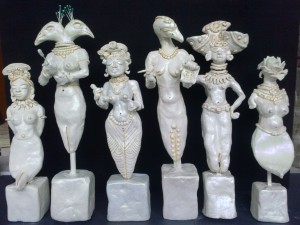Renuka Rajaratnam argues in The Hindu that the Indian novelists of the 80s and 90s championed Nehruvian ideas, whether intentionally or not, in response to the Emergency imposed by Indira Gandhi. She discusses, amongst other novels, Rushdie’s Midnight’s Children, Vikram Seth’s A Suitable Boy and Shashi Tharoor’s The Great Indian Novel. For me, however, it is Rohinton Mistry’s A Fine Balance which stands out for its powerful depiction of the atrocities forced upon Indians during the Emergency (castrations, anyone?), as well as how people from disparate socio-economic backgrounds come to live together and grow to respect and even love each other (the final scene is a microcosm of individual against authoritarian rule beautifully depicted through one woman and her domestic setting).
“Fiction of the 1980s and the 1990s demonstrated the role of English in embracing secular modernity to move beyond the pigeon-holes of caste and tradition. In Rushdie, we note the use of linguistic excess, particularly in the Midnight’s Children, symbolising the democratic mingling of all linguistic forces and the ‘chutnified’ outcome of English when spoken alongside other bhashas (languages).
Salman Rushdie’s Midnight’s Children is a powerful anti-Emergency narrative and can be in many ways — alongside Vikram Seth’s The Suitable Boy — seen as a Nehruvian epic. Where Rushdie dismantles the idea of a single national identity through a minoritarian perspective, Seth’s novel is an explicit endorsement of Nehruvianism and strongly opposes a way of imagining the nation on religious terms. Similarly, Rohinton Mistry in his A Fine Balance engages deeply with the issues of the State and offers a relevant critique that is more reformative rather than revolutionary.” read rest here







